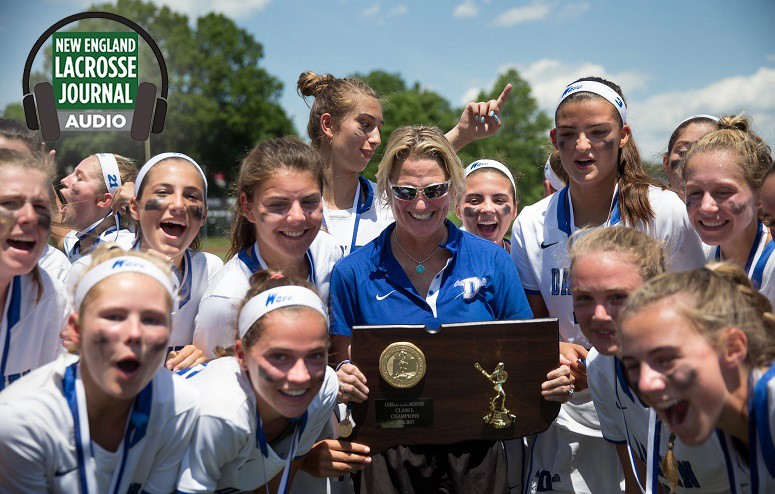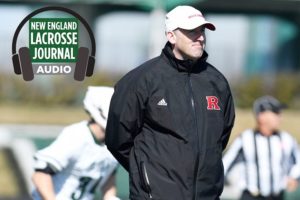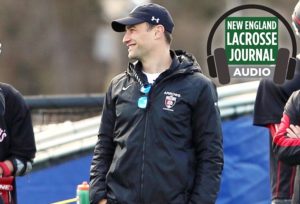
Lisa Lindley grew up in Simsbury, Conn., with a bunch of older siblings, and knew from an early age she wanted to take sports to the highest level she could.
The question was, which sport? She was recruited in field hockey and basketball coming out of Simsbury High School, and picked up lacrosse during her time at Northwestern. After transferring to UMass, she went on to star in lacrosse and field hockey, earning All-America honors in both. She made the U.S. World Cup Lacrosse team.
After her playing days, she transitioned to coaching, where she has led Darien (Conn.) High School to 17 state championships. Those achievements earned her induction into the National Lacrosse Hall of Fame.
She joined host Jack Piatelli on “New England Lacrosse Journal’s Chasing The Goal” podcast to talk about her introduction to lacrosse, team culture and the dark side to recruiting.



